
This Easter holiday Academic Families took a group of motivated teenagers on an unforgettable journey through Kenya. We supported several amazing projects on land and sea, connecting with wonderful people along the way.
The adventure began in Nairobi, Kenya's vibrant capital, where we settled into a comfortable hotel. Our first day was hands-on, starting with a visit to a baby elephant orphanage. We fed and learned about these incredible animals, understanding the challenges they face from climate change and poaching. Next, we fed giraffes from a tall platform, marvelling at their long tongues which curled around our hands - resulting in many squeals of shock!
The first of our volunteering projects was our visit to Alive and Kicking, the world’s only not-for-profit football manufacturer. Here we saw all the steps of the process of manufacturing footballs by hand – only one of two projects worldwide doing this.
This charity organisation employs people who have never previously been employed, creating jobs and life-changing opportunities for their staff. Each person is trained to hand-make footballs by sewing hexagonal patches – all 32 of them - into full-sized leather footballs. We tried our hand at stitching footballs, realising it's harder than it looks!
Luckily, the staff at Alive and Kicking had already made a big batch of balls for us, so we set off for our football match marathon around Kenya.
As we drove and saw groups of young people, we stopped to donate footballs, often playing a short game too. Nearly every local team that challenged us won!
When not playing, our young international students mixed with the lovely locals – usually through singing and dancing. We felt extremely welcomed by everyone.
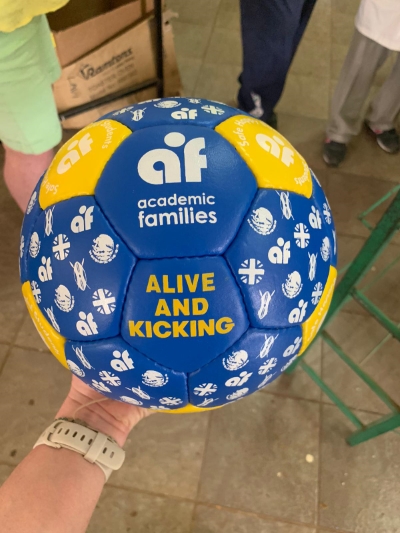
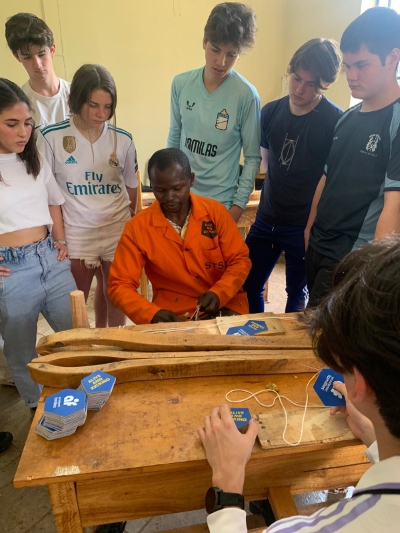
Donating our Academic Families balls opened many doors – or rather Kenyan school gates - and opportunities for us to connect to children we would never have met otherwise. Using football as a global language, our international students were able to form instant bonds with local Kenyan children, parents and teachers.
From Nairobi, we travelled to Elenai Camp, a Maasai project which is owned and run by the local community. Here with iconic views of Mount Kilimanjaro as the background, Elenai was basecamp for the next four days.
Maasai definition: an Indigenous Nilotic ethnic group living in northern, central and southern Kenya.
We spent one day in a Maasai camp learning their traditional skills including fire lighting and spear throwing. Our students also took a turn at African dancing, cooking and craftwork and even pitched in to help build houses.
Our next project focused on sustainability and reducing the conflict between humans and wildlife. With local Kenyan support, we designed and built a waterhole pan to increase its capacity and reduce evaporation. This helped to ensure the local wildlife would have a steady supply of water even during the droughts.
As a group, we learned to track animal footprints and identify signs of animal activity. Now trained by the locals, we set off on safari in the first of our national parks - Amboseli.
Our safari transport varied each day - Land Cruisers, bikes, and even on foot! We ticked off many animals on our wildlife bucket list including -
We also spotted two cheetahs, hippos, zebras, giraffes, gazelles, and lots of birds including flamingos, fish eagles and weaver birds.
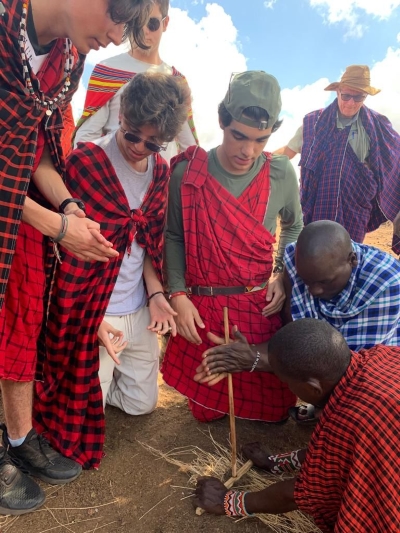
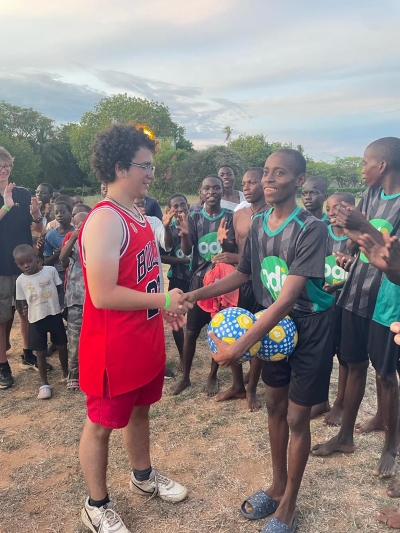

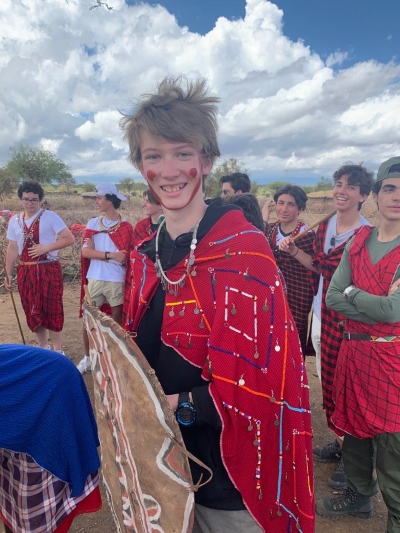
As we travelled through national parks and reserves towards the Kenyan coast, one particularly special experience was spending the night on the Tsavo National Park’s Ngulia Rhino Viewing Platform - a raised area beside a busy waterhole.
Throughout the night, the animal sounds became louder and clearer - including the padding of elephant and rhino feet, elephant trumpets, giraffes drinking and even some lion roars! We also managed some sleep, but it was a surreal experience.
Academic Families' main coastal project was helping rejuvenate the Kenyan coastline, ensuring the continuity of fishing communities.
We continued to work with the local community via the Kuruwitu Conservation and Welfare Association (KCWA). This marine conservation project taught our students about the importance of the coral, the reasons why it's under threat, and how to plant replacement coral beds. It was amazing to see different fish species swimming around the recently planted coral!
Through their interesting talks and demonstrations, our students were able to understand that the stunning small fish are the start of the food chain, which eventually leads to the fishermen’s catch and the overall livelihood of the entire community.
While on the coast, we enjoyed several more football matches played against a very strong local girls’ team from the Moving the Goalposts charity, to which we donated training kit and footballs.
Our last day was spent on the water - water-skiing, windsurfing and sailing, while a traditional dhow boat up the Kilifi Creek ended a very memorable day. Everyone took the opportunity for a last chance to swim and catch some sun - the perfect end to a once-in-a-lifetime trip for our international students in Kenya!

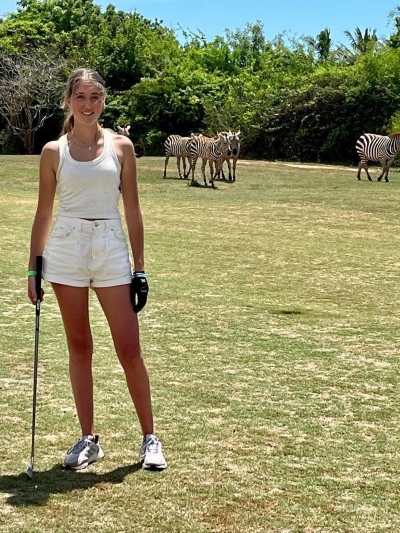
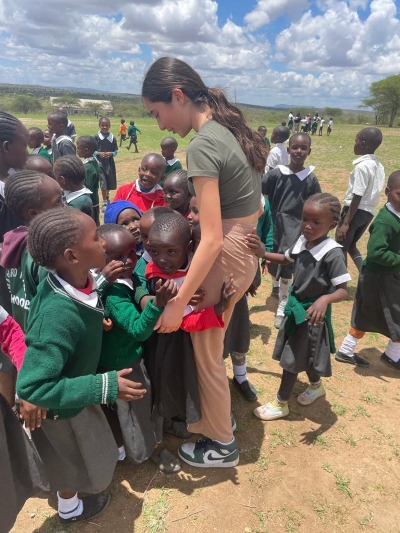
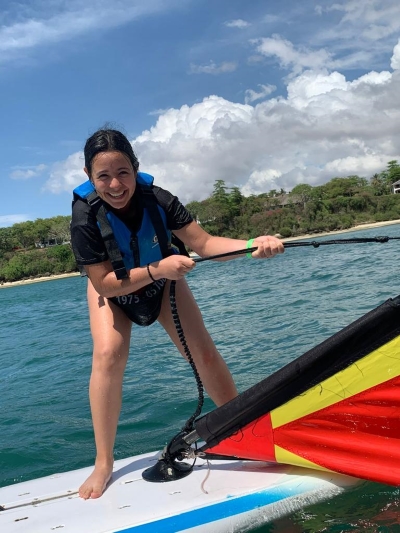
At Academic Families, we also have lots of ideas for how next year’s trip can make an even bigger impact, and we look forward to continuing to make a difference on both a local and global level.
When reflecting on the experience, one of our students said it best -
“During these 3 weeks in Kenya, we've done a lot of different activities that will stay with me for the rest of my life. The trip is not just a vacation. I learned a lot, for example, how these amazing people who live in Kenya are very happy and grateful for what they have. It's made me realise that we don’t need materialistic things to have a happy life. It has made me change as a person.”
This article appears in the following categories Guardianship, Students
"*" indicates required fields








© 2025 Academic Families | Academic Families is a Safer Recruiter